QUESTION 1
QUESTION 1
In this case:
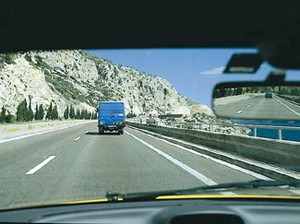
You can start overtaking.
You have to wait to overtake after the bend.

QUESTION 2
QUESTION 2
On what condition can you enter the part of the road which is defined by a mesh of yellow lines?
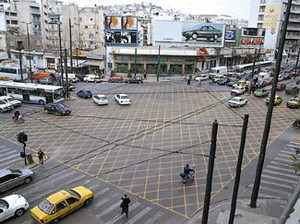
On condition that, if you enter, you will not be obliged to stay inside the intersection due to the heavy traffic.
On condition that you will compulsorily follow a straight course.

QUESTION 3
QUESTION 3
What does this traffic sign mean?
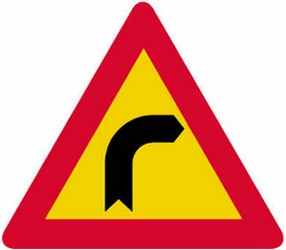
Right turn is forbidden.
Dangerous right bend ahead.
Turn right ahead.

QUESTION 4
QUESTION 4
This traffic sign indicates:
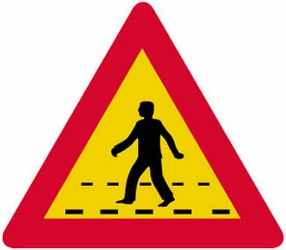
Route for pedestrians only.
No entry to pedestrians.
Danger due to the passage of pedestrians.

QUESTION 5
QUESTION 5
What does this traffic sign mean?
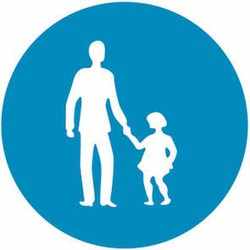
Road for pedestrians only, where vehicles, except for emergency ones, are forbidden, and road for entry to, and exit from roadside properties.
Danger due to the frequent passage of pedestrians.
Pedestrians accompanying children are permitted only.

QUESTION 6
QUESTION 6
What does this traffic sign mean?
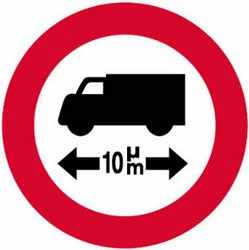
No entry to lorries with a distance of over 10 m between wheel axles.
No entry to lorries whose body is over 10 m long.
No entry to vehicles or combinations of vehicles with a length of over 10 m.

QUESTION 7
QUESTION 7
What does this traffic sign mean?

Vehicles carrying hazardous loads must turn right.
Vehicles carrying hazardous loads are prohibited from turning right.
Vehicles carrying explosive or inflammable materials must turn right.

QUESTION 8
QUESTION 8
What does this traffic sign mean?
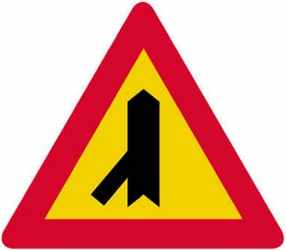
Branch with an oblique road where priority from the left applies.
Branch with an oblique road on the left, those moving on which must give priority.
Left turn is forbidden.

QUESTION 9
QUESTION 9
What does this traffic sign mean?
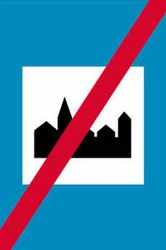
End of archaeological site.
End of inhabited area.
End of tourist area.

QUESTION 10
QUESTION 10
What does this traffic sign mean?
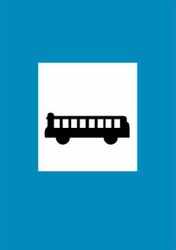
No entry to buses.
Place for bus parking.
Bus or trolley-bus stop.

QUESTION 11
QUESTION 11
What does this traffic sign mean?
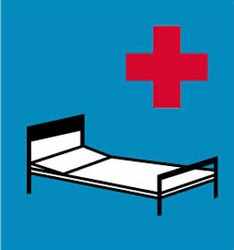
First Aid Station.
Hospital (for avoiding or reducing any unnecessary noise).
Country clinic.

QUESTION 12
QUESTION 12
This traffic sign informs you of:
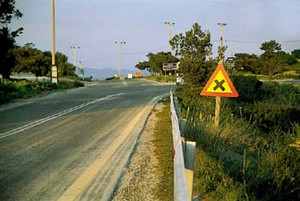
A danger and an intersection where priority from the right applies.
A danger and an intersection where you have priority.

QUESTION 13
QUESTION 13
Which vehicle must wait for the other to pass?
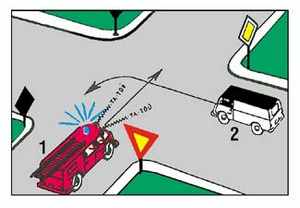
Vehicle 2.
Vehicle 1.
None; the drivers must agree between themselves.

QUESTION 14
QUESTION 14
The traffic light is red. Which vehicle must wait?
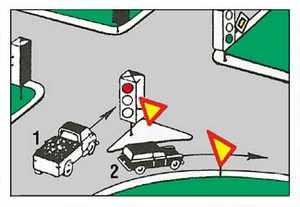
Both vehicles.
Vehicle 2.
Vehicle 1.

QUESTION 15
QUESTION 15
The car in this picture intends to turn right to the road where you are moving. What should you do and why?
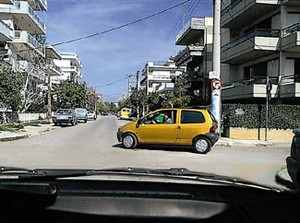
Continue without slowing down and overtake the car on the left, because your speed is higher.
Slow down and give way to the car, because it comes from the right.

QUESTION 16
QUESTION 16
In a residential area which is lighted at night, you must drive having the following lights on:
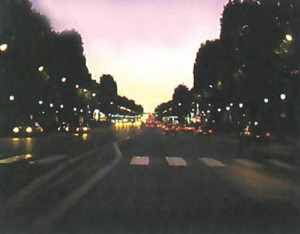
Full beam headlights.
Dipped headlights.
Side lights only.

QUESTION 17
QUESTION 17
At a normal course where you do not need to change gears often, the left foot:

Should remain immobile on the left of the pedal.
Should remain immobile opposite to the pedal.
Should remain on the clutch pedal without pressing it.

QUESTION 18
QUESTION 18
At which position in an one-way street is parking of vehicles allowed, if there is no prohibiting traffic sign?

Only on the left end of the road.
Only on the right end of the road.
On both the left and right ends of the road.

QUESTION 19
QUESTION 19
Every time the speed doubles, centrifugal force:

Trebles.
Doubles.
Quadruples.

QUESTION 20
QUESTION 20
In order to go past a pedestrian, you should leave a side distance of at least:

1,5 m.
1 m.
0,50 m.

QUESTION 21
QUESTION 21
Reaction time varies according to:

Your age.
Condition of your vehicle.
External conditions (fog, etc.).

QUESTION 22
QUESTION 22
Why are drivers not permitted to drive very slowly without a serious reason?

Because the danger of a crash (from behind) would increase.
Because traffic flow would be hindered without a serious reason.

QUESTION 23
QUESTION 23
When in a two-way street two continuous white lines divide the directions, are you allowed to cross them?

Yes, if you have visibility and have checked the opposite direction.
No, not in any circumstances.
Yes, if the leading vehicle is moving at a very low speed.

QUESTION 24
QUESTION 24
Why must you not disengage and switch off the engine simultaneously, when you are driving on a long downhill a vehicle that has a steering-wheel and brakes supporting system?

Because the battery will be overcharged.
Because the steering-wheel will become unusually heavy (it may be locked), the effectiveness of the brakes will be reduced and engine braking effect will disappear.

QUESTION 25
QUESTION 25
The consumption of alcohol affects driving. The possible effects are:

Bad estimation.
Better concentration.
Achromatopsia

QUESTION 26
QUESTION 26
In case of a heavy rain, you should switch on:

The dipped headlights and the front fog lights.
The rear fog lights.
The side lights only.

QUESTION 27
QUESTION 27
In order to call for assistance urgently:

Dial 131 or 141.
You should dial 166, 199 or 100 through an available telephone.

QUESTION 28
QUESTION 28
How will you realize that your exhaust pipe needs to be replaced?

From the excessive fuel consumption.
From the excessive noise.
From the colour of the exhaust gases.

QUESTION 29
QUESTION 29
What should you do if the engine oil pressure lamp is on while the engine works?

Check the quantity of oil and fill it in, if necessary.
Change engine oil.
Replace the belt of the camshaft.

QUESTION 30
QUESTION 30
The pollution caused by petrol engine motor vehicles:

does not depend on the timing engine
may be due to poor (bad) timing engine
does not depend on the existence of lead in petrol

RESULTS-
ΕΡ
TR
ΕΠ
RESULTS
SECTION

